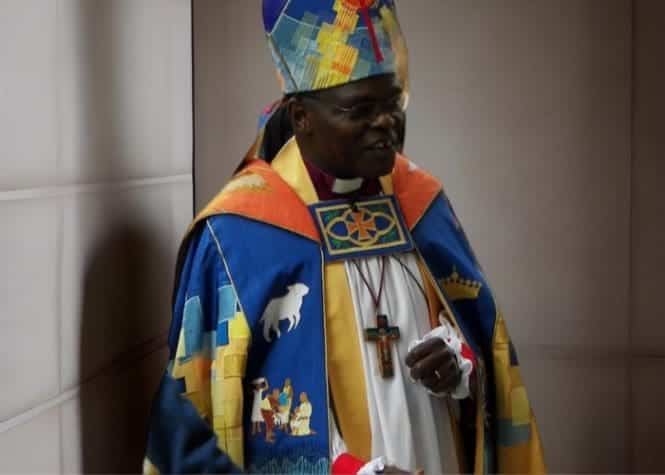Anglican Watch has never covered the mess in the Church of England’s (CoE) safeguarding program as thoroughly as we should. That’s because, as an established church, the CoE has layers of administration and bureaucracy that are unfathomable to us.
But one thing’s very clear: the CoE’s safeguarding process is teetering on the brink of implosion.
Why?
The reasons are varied and familiar to members of the Episcopal church. These reasons include the following:
- An inability of the church to conduct meaningful investigations of its behavior.
- An unwillingness to change.
- Lack of accountability, including for bishops like Lord Sentamu, who is complaining about his precious reputation, despite being one of the worst regarding addressing abuse.
- The ever-popular victim blaming, including the Rt. Rev Steven Croft, who is trying to cling to power by victim-blaming, including Matt Ineson. For the record, clergy are always responsible for their actions, no matter what the victim allegedly does. In other words, nice try Croft. You’re a dirtbag.
- Tampering and obstructionism by the bishops.
Now, into that tawdry mix, we have learned that the Independent Safeguarding Board (ISB) has filed a notice of dispute resolution with the Archbishops Council.
The Church Times reports:
We’re asserting that the Council has interfered and, at times, become too involved in the operation of the ISB, compromising its independence. We acknowledge and appreciate that, while the Council wishes to support the ISB, at times the level of involvement has not been enabling.”
Their letter refers to the recent appointment of Meg Munn as acting chair of the ISB (News, 31 March), which Ms Sanghera and Mr Reeves repeat had been decided without consultation with either them or survivors. Ms Munn also chairs the Church’s National Safeguarding Panel.
More than 70 survivors and survivor advocates have since objected to the appointment, including over what they see as a conflict of interest. Fifty survivors have asked that their data are not shared with Ms Munn. Her appointment was ratified by the Archbishops of Canterbury and York (News, 5 May).
Ms Sanghera and Mr Reeves told the Church Times: “On 21 March 2023, the Council informed the Board members that it had made several decisions which compromise the ISB’s independence and terms of reference. These decisions related to the appointment of an acting ISB chair, and the level of engagement permitted with survivors of church abuse. The decisions were in direct contravention of the terms of reference of the ISB, which were unanimously approved at the outset of the ISB’s work by the Council itself.”
They went on to complain of “a pattern of conduct” by the Archbishops’ Council which has restricted the workings of the ISB.
As survivor-advocate, Ms Sanghera said that she had been “prevented from carrying out her duties, and these actions have been questioned by those whose experiences she is responsible for advocating and incorporating into safeguarding policy and practice frameworks.
“These decisions have resulted in a profound loss of confidence in the ability of the Council to ensure competent safeguarding practice. The Council’s actions have caused concern to, protest from, and distress to many survivors of Church abuse.”
Last week, Ms Sanghera announced a victim-and-survivor consultative panel “towards establishing greater independence” from the Church. A link to an expression of interest form was posted on the ISB website, and 15 responses gathered. It was later taken down however, the Church Times understands, at the request of Ms Munn.
A new link has been posted elsewhere with a deadline of 11 June for submissions. The idea has been welcomed by the House of Survivors — a website created by survivors promoting resources for both survivors and the Church.
Matt Ineson, who declined to share data with Ms. Munn, is quoted:
A survivor of church-based abuse, Matthew Ineson, is among those who have objected to their personal data being shared with Ms Munn. “It is never good when there are conflicts of interest in any situation,” he said on Wednesday. “That is the issue here.”
It was also about perception, he said. “There is a lack of trust. [Ms Munn] must step aside. If not, victims are being ignored again, and the ISB will lose all credibility in their eyes. This is not personal; it is simply getting something in place victims can trust in and making it work.”
All of this begs the question: Why wouldn’t the CoE start by asking the foundational question of survivors: “Who do you think is best able to resolve your concerns?”
Anglican Watch also notes that the issue with Ms. Munn has been floating about for more than two months. While we recognize that nothing in the church moves quickly, the foot-dragging and delay in this matter is disrespectful. Survivor concerns about her fitness for the position should have been immediately addressed, but it appears that the CoE is trying to steamroll legitimate criticism.
Relatedly, we encourage Matt Ineson and others to weigh in, as we are the first to admit that we lack all but a basic understanding of the complexities of the Church of England.
That said, we are entirely on the side of the survivors, and we are appalled by the blithering, useless comments from Lord Sentamu and Steven Croft.
As to Croft, he needs to resign immediately. And he needs to retract his comments about Matt Ineson post-haste.
Lastly, the CoE needs to get Safeguarding right. If it continues to operate in a way that does not engender trust or shuts down the ISB, we predict an outpouring of criticism and disaffiliation from the church warranting parliamentary intervention.


Leave a Reply